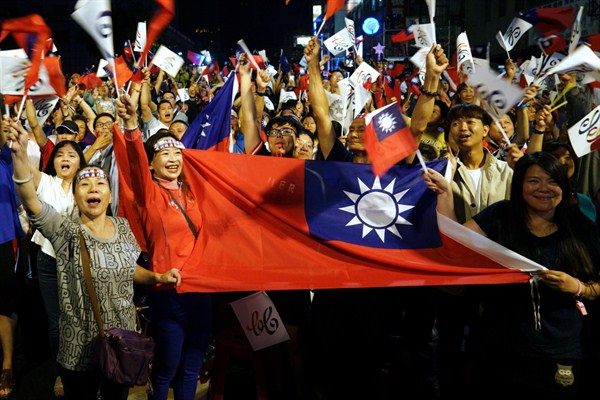Taiwan’s ruling Democratic Progressive Party, or DPP, suffered a historic defeat in local elections last weekend that were overshadowed by an extensive Chinese interference campaign. Taking responsibility for her party’s midterm drubbing, President Tsai Ing-wen resigned as DPP leader on Saturday night, casting doubt on her prospects for winning a second term in national elections set to take place in early 2020.
Many observers had expected the opposition Kuomintang, or KMT, which favors closer ties with China, to make a comeback after losing both the presidency and a legislative majority in 2016. Anti-incumbency was in the air in the months leading up to election day, with opinion polls showing some of Tsai’s lowest approval ratings so far in her four-year term. But voters surpassed those expectations to deliver a stunning rebuke to the independence-leaning DPP, which managed to win only six of the 22 key races for mayoral and county magistrate positions. The party previously held 13 of those seats.
In the southern port city of Kaohsiung, Taiwan’s third-largest population center and a DPP stronghold for the past 20 years, the KMT’s nominee for mayor, Han Kuo-yu, pulled off an upset victory driven by straight-talking populist rhetoric and folksy appeals to the working class. On the eve of the elections, he drew raucous applause from a crowd of 200,000 supporters when he promised to “make Kaohsiung great.” Meanwhile, his opponent struggled to connect with voters despite a positive trajectory of local economic development under DPP rule. “Kaohsiung has been transformed in the last 20 years, but the DPP candidate did not manage to get that message across,” says Dafydd Fell, director of the Center for Taiwan Studies at the School of Oriental and African Studies in London, in an email.

